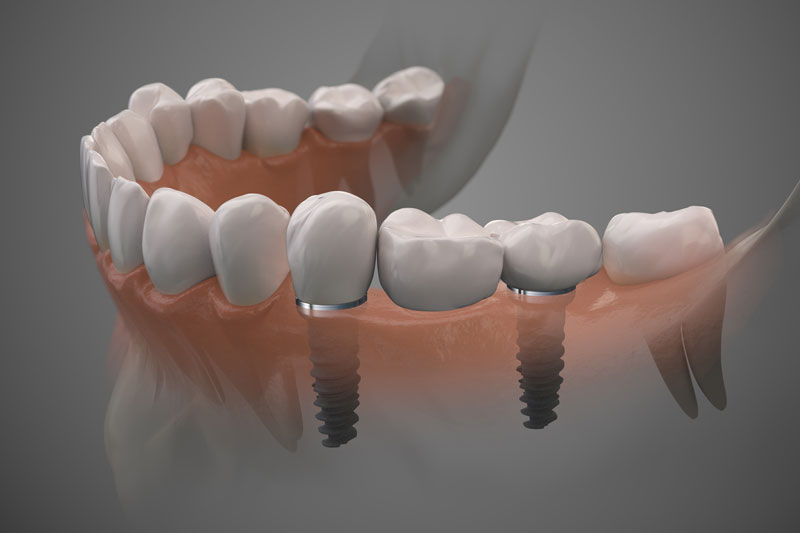What Is a Dental Implant Failure Policy?
Not every dental implant lasts forever, but a clear implant failure policy means you’re never left without options. A dental implant failure policy outlines what happens if an implant doesn’t heal properly or complications arise, providing structured treatment options for the best possible outcome.
A dental professional carefully manages every stage of your dental implant treatment, from placement to aftercare. If an implant fails, having a policy in place provides support to restore function and replace missing teeth without unnecessary stress.
At FoX Implant Centre, transparency comes first. Patients receive clear guidance and solutions designed to support long-term success.

Common Causes of Dental Implant Failure
Dental implants are highly reliable, but complications can still happen. A failed implant can result from various factors, including oral health habits, medical conditions, or issues during implant placement. Understanding these risk factors helps patients make informed decisions about their care.
Some dental implant complications develop over time, while others arise early in the healing process. When problems occur, having a plan for tooth replacement helps patients regain function and confidence.
Here are the most common reasons implants may fail:
Poor Oral Hygiene
Skipping daily oral care can put your dental implant at risk. Without proper dental hygiene, plaque and bacteria build up around the implant, increasing the chances of infection and complications. Over time, neglect can weaken the surrounding gum tissue, making it harder for the implant to stay secure.
Simple habits like flossing and brushing daily help keep implants in good condition. When oral care is ignored, the risk grows, and if the infection spreads, the implant fails, leading to further treatment or replacement.
Gum Disease
Healthy gums are the foundation of a strong dental implant. When periodontal disease develops, bacteria attack the surrounding gum tissue, causing inflammation and bone loss. This weakens the support structure, making it difficult for the implant to stay secure.
If gum disease is left untreated, the risk of a failed dental implant increases significantly. Addressing gum health before implantation helps create a stable environment, reducing complications and supporting long-term success.
Smoking & Tobacco Use
Smoking is one of the biggest threats to successful implant healing. Studies show that smokers face a significantly higher risk of implant failure compared to non-smokers. Tobacco reduces blood flow, slowing the healing process and making it harder for the implant to integrate with the bone.
Tobacco use also weakens oral health, increasing the likelihood of infection and gum recession. Quitting before and after surgery promotes better dental care, giving the implant a stronger foundation for stability and function.
Diabetes & Health Issues
Health conditions like diabetes can interfere with implant healing and stability. High blood sugar slows recovery and increases the risk of infection, making it harder for the implant to integrate with the bone. Other autoimmune diseases can also affect the body’s ability to heal, leading to complications.
A thorough medical history review helps identify potential risks before surgery. Conditions like osteoporosis may weaken bone density, affecting how well the implant fuses. Proper medical management improves the chances of a successful outcome.
Bone Loss
A strong foundation is essential for a stable dental implant, but bone loss can make that difficult. If the jaw bone lacks density, the implant may not integrate properly, leading to instability and failure. Over time, missing teeth can cause further bone loss, making future procedures more challenging.
When insufficient bone is detected, bone grafting can help rebuild the area and improve bone density before implant placement. Strengthening the bone structure increases the likelihood of a secure and lasting result.
Allergic Reactions
Allergic reactions to dental implants are rare but can affect healing and comfort. Some patients may experience sensitivity to a titanium implant, leading to inflammation or irritation around the surgical site. Symptoms can include swelling, pain, or difficulty with osseointegration.
At FoX Implant Centre, every implant post is made from high-quality, biocompatible materials to minimise the risk of adverse reactions. Patients with known metal allergies can discuss alternative options for a safer, more comfortable implant experience.
Peri-Implantitis
Peri-implantitis is a serious condition that can lead to implant failure if left untreated. This inflammatory disease occurs when a bacterial infection develops around the implant, causing gum inflammation and bone loss. Without proper intervention, the implant can become loose and may need to be removed.
Good oral hygiene and regular dental visits help prevent peri-implantitis by keeping bacteria under control. If detected early, treatment options such as deep cleaning and antimicrobial therapy can help protect the implant and surrounding tissue.
Teeth Grinding (Bruxism)
Excess pressure on dental implants can lead to complications over time. Bruxism, or teeth grinding, puts strain on the implant and adjacent teeth, increasing the risk of fractures or implant loosening. Constant grinding can also interfere with healing after surgery.
Using a custom night guard helps reduce occlusal stress, protecting the implant from excessive force. Managing stress and addressing bite issues can further prevent long-term damage.
Infection & Bacteria
Infections can compromise an implant’s ability to heal and integrate with the bone. Bacteria introduced during or after surgery may lead to swelling, pain, and implant instability. Without prompt treatment, the infection can spread, increasing the risk of failure.
FoX Implant Centre follows strict sterilisation protocols to minimise surgical risks. Detailed post-op care instructions help patients manage healing and reduce bacterial exposure for a smoother recovery.
Medication Side Effects
Some medications can interfere with bone healing and implant stability. Drugs like bisphosphonates, often prescribed for osteoporosis, may slow bone regeneration and increase the risk of complications. Certain medical conditions requiring long-term medication can also impact recovery.
Our dental professionals conduct a thorough assessment to evaluate potential risks before treatment. Reviewing a patient’s full medication history helps create a safe and effective treatment plan for implant success.
FoX’s Dental Implant Failure Policy
We’re committed to giving you the best possible outcome, even if an implant doesn’t go as planned. Our dental implant failure policy provides clear support, including follow-up care and solutions tailored to your needs.
Titanium implants come with a lifetime warranty, while acrylic components are covered for one year. Regular check-ups and maintaining your implant site help protect your investment.
If a failure occurs, our experienced dentists will assess the issue and recommend the right solution. With years of experience in implant dentistry, we’re dedicated to helping you achieve optimal results.
FoX Smile Care Program
Protecting your dental implants doesn’t stop after surgery. The FoX Smile Care Program is a dedicated maintenance plan designed to keep your implants in top condition for years to come. Members receive routine check-ups, extended warranty coverage, priority repairs, and exclusive perks—all for an affordable monthly fee.
This program is ideal for anyone with FoX Infinity Smile or FoX Signature Smile who wants long-term protection. Regular professional care helps reduce complications and extends the life of your implants. Enrolling is easy, and our team will guide you through the process to keep your smile healthy and secure.

How to Handle a Failed Dental Implant
If dental implants fail, acting quickly can help prevent further complications. Early intervention improves the chances of saving the implant or preparing for a replacement. Knowing what to do can make the process easier.
1. Contact FoX Implant Centre to schedule an evaluation. A prompt assessment helps determine the cause of the failure and the best way forward.
2. Get examined, which may include X-rays to check bone health and implant stability. This helps identify whether the implant can be salvaged or if a new implant is needed.
3. Follow treatment recommendations, whether that means deep cleaning, bone grafting, or replacement. Maintaining good oral hygiene after treatment supports healing and long-term implant success.
Minimising the Risk of Dental Implant Failure
A little extra care goes a long way in keeping dental implants secure. While implant failures can happen, taking the right steps can significantly reduce the risk. Proper maintenance and professional guidance play a key role in long-term success.
- Maintain good oral hygiene to protect the implant and surrounding gum tissue the same way you care for natural teeth.
- Attend regular check-ups to catch potential issues early and keep the implant in top condition.
- Follow post-op care instructions to support healing and avoid unnecessary strain on the implant site.
- Schedule every recommended follow-up appointment to monitor progress and make adjustments if needed.
- Choose experienced professionals for dental procedures to improve placement accuracy and aftercare.
At FoX Implant Centre, prevention is a priority. Our team provides professional guidance to help patients maintain strong, healthy implants for years to come.
The Importance of Choosing a Qualified Implant Dentist
Choosing the right dentist is key to the long-term success of dental implants. A skilled and experienced implant dentist understands the complexities of the surgical procedure and supports proper bone growth for a stable foundation. At FoX Implant Centre, our team combines experience with state-of-the-art facilities to deliver optimal results.
We provide end-to-end care, from initial consultation to follow-up, tailoring every step to your needs.

Get the Best Care for Your Dental Implants at FoX
The right care makes all the difference in the lifespan of your dental implants. FoX Implant Centre offers advanced dental implant placement with precision, experience, and state-of-the-art technology. Our team is dedicated to delivering lasting results with personalised treatment plans.
With locations in Adelaide, Melbourne, and Brisbane, we make high-quality implant care accessible. Whether you need an assessment, follow-up, or a full implant procedure, we’re here to help.
Book a consultation now and experience the difference in implant care.

Get implant pricing and financing options,
Including your superfund!
Find Out If You're A Candidate!







